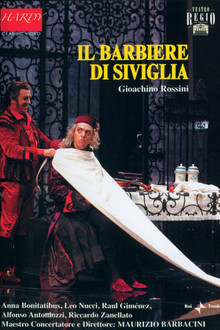After the acclaimed Met premiere of Thomas Adès's "The Tempest" in 2012, the composer returned with another masterpiece, this time inspired by filmmaker Luis Buñuel's seminal surrealist classic "El Ángel Exterminador", during the 2017–18 season. As the opera opens, a group of elegant socialites gather for a lavish dinner party, but when it is time to leave for the night, no one is able to escape. Soon, their behavior becomes increasingly erratic and savage. The large ensemble cast tackles both the vocal and dramatic demands of Adès's opera with one riveting performance after another. Tom Cairns, who also penned the work's libretto, directs an engrossing and inventive production, using a towering wooden archway to trap the characters onstage. And Adès himself takes the podium to conduct the frenzied score, which features a host of unconventional instruments, including the eerie electronic ondes Martenot.
Related Movies
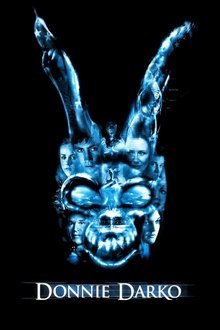
Donnie Darko (2001)
After narrowly escaping a bizarre accident, a troubled teenager is plagued by visions of a large bunny rabbit that manipulates him to commit a series of crimes.
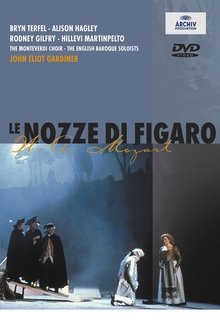
The Marriage of Figaro (1993)
This is a good video of "Figaro", but there are a couple of better ones available. The Bohm and the Pappano are better still due to the female members of the casts. The reason for buying this one is the "Figaro", Bryn Terfel. No one can top him today in that role. John Eliot Gardiner also stands out. Many of us have voiced their opinion that If the Metropolitan Opera would release it's 1998 version, that would be the one to get.

Puccini: Manon Lescaut (1980)
All the throbbing eroticism—and ultimate heartbreak—of Puccini’s youthful score is unleashed by James Levine and his top-flight cast. Plácido Domingo is Des Grieux, the handsome, headstrong young aristocrat who falls head over heels for the enticing, impetuous Manon Lescaut (Renata Scotto). Manon returns his love, but her obsession with luxury ruins them both. Gian Carlo Menotti’s opulent production, with sets and costumes by Desmond Heeley, superbly captures the colorful world of 18th century France.
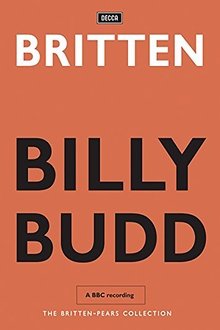
Billy Budd (1966)
A version of Benjamin Britten's opera based on the Melville story. Will the virtuous young sailor Billy Budd be hanged for murder?
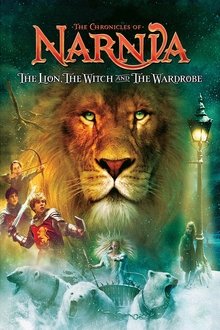
The Chronicles of Narnia: The Lion, the Witch and the Wardrobe (2005)
Siblings Lucy, Edmund, Susan and Peter step through a magical wardrobe and find the land of Narnia. There, they discover a charming, once peaceful kingdom that has been plunged into eternal winter by the evil White Witch, Jadis. Aided by the wise and magnificent lion, Aslan, the children lead Narnia into a spectacular, climactic battle to be free of the Witch's glacial powers forever.

La Traviata (2001)
La traviata (Italian: [la traˈviaːta], "The Fallen Woman"[1][2]) is an opera in three acts by Giuseppe Verdi set to an Italian libretto by Francesco Maria Piave. It is based on La dame aux Camélias (1852), a play adapted from the novel by Alexandre Dumas, fils. The opera was originally entitled Violetta, after the main character. It was first performed on 6 March 1853 at the La Fenice opera house in Venice. Piave and Verdi wanted to follow Dumas in giving the opera a contemporary setting, but the authorities at La Fenice insisted that it be set in the past, "c. 1700". It was not until the 1880s that the composer and librettist's original wishes were carried out and "realistic" productions were staged.[3]
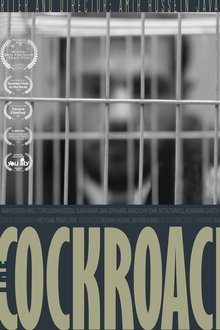
The Cockroach (2022)
The groom goes to the hairdresser to take the bride but he's been told that she has become a cockroach.
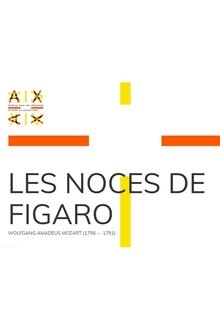
The Marriage of Figaro - Aix-en-Provence Festival (2021)
co-production with the Teatro Real (Madrid).
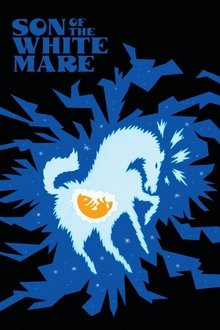
Son of the White Mare (1981)
A horse goddess gives birth to three powerful brothers who set out into the Underworld to save three princesses from three evil dragons and reclaim their ancestors' lost kingdom.
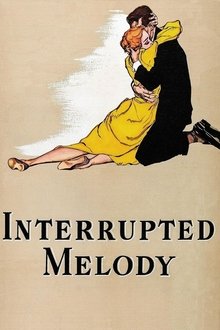
Interrupted Melody (1955)
Interrupted Melody is the inspirational filmed biography of world-renowned Australian soprano Marjorie Lawrence. She’s a foremost Wagnerian, equal to the vocal and physical demands of the composer’s oeuvre. And she’s a beacon of triumph to anyone who fights back when personal tragedy strikes.
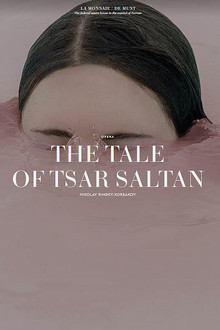
The Tale Of Tsar Saltan (2019)
Tsar Saltan marries the youngest of three sisters, having heard that it is her dearest wish to present him with a heroic son and heir. Her jealous sisters and the old Aunt Barbaricha cannot bear this situation to persist and by trickery see to it that the Tsaritsa and her newborn son Gvidon are thrown into the sea. In their barrel they are washed ashore on an enchanted island where the rapidly growing tsar’s son saves a swan from the clutches of a wizard. In gratitude, the swan helps Gvidon to visit his native country once again in the guise of a bumblebee. Three wishes, three miracles and three bee-stings later, father and son are finally able to get to know each other.
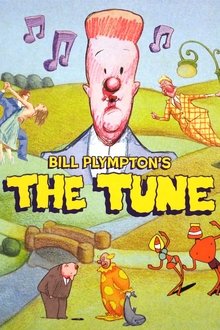
The Tune (1992)
Del is a song writer for the obnoxious Mr. Mega, and in love with Didi, Mega's secretary. His quest to write a hit tune brings him to the wacky world of Flooby Nooby, where he just might learn to write songs from the heart. Preserved by the Academy Film Archive in 2016.
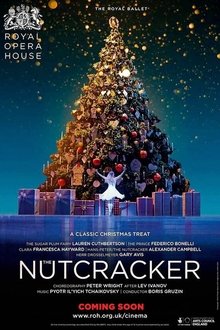
The Royal Ballet: The Nutcracker (2023)
Clara is given an enchanted Nutcracker doll on Christmas Eve. As midnight strikes, she creeps downstairs to find a magical adventure awaiting her and her Nutcracker. The magician Drosselmeyer transforms the drawing room into a battle between mice and toy soldiers. During the battle, Clara saves the Nutcracker’s life – so breaking a magical spell that turned him from a boy to a toy – and the Mouse King is defeated. In celebration, Drosselmeyer sweeps Clara and the Nutcracker off to the Kingdom of Sweets, where they meet the Sugar Plum Fairy and take part in a wonderful display of dances. The next morning, Clara’s adventures seem to have been more than just a dream.
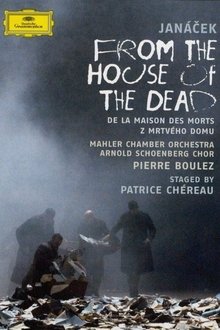
From the House of the Dead (2007)
Set in a Siberian prison camp, Janacek's final opera centers on the experiences of recent arrival Alexandre Petrovitch Goriantchikov (Olaf Bar), a nobleman who finds relief from the harsh conditions in the friendship of the illiterate Alyeya (Eric Stoklossa). Recorded at the Grand Theatre de Provence, this stage production is directed by the well-respected Patrice Chereau and features famed conductor Pierre Boulez. Filmed at the Aix-en-Provence Festival on 20 July 2007.

Mugamoodi (2025)
A schoolboy starts to wonder, “Who am I?” He notices that everyone around him—his classmates, teachers, and even his parents—are wearing strange masks. He feels different and confused. As he searches for answers and tries to understand who he really is, the world around him becomes more and more strange. This Kaber Vasuki Mugamoodi music video explores themes of identity, pressure, and how society sometimes forces us to hide who we truly are.
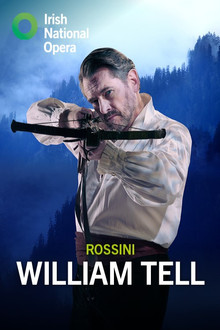
William Tell - INO (2023)
A freedom fighter in Austrian-occupied Switzerland. An oppressive Habsburg governor. The most famous Swiss apple. And a love story that crosses national divides. Rossini’s thrilling epic, his final masterpiece with the world’s most famous overture, is his most ambitious, forward-looking and vocally challenging opera. Having become the rallying cry of the 1830 revolution in France, Rossini’s final opera is nothing short of revolutionary itself. Retelling the legend of the Swiss folk hero based on Schiller’s play, William Tell is a grandiose ode to freedom. Staged for the first time in Ireland since 1875, this production is conducted by Fergus Sheil and directed by Julien Chavaz who takes a mythological approach. For him, ‘the story is not just about a remote Swiss community facing Austrian invaders. It is the story of a society that suddenly has to face a threat to its model of civilisation.’
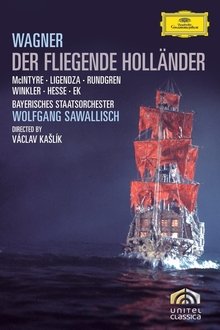
Der Fliegende Holländer (1975)
This vivid film of Wagner's romatic opera succeeds in conveying what has famously been called "the wind that blows out at you whenever you open the score", including Daland's boat anchoring against the Sandwike cliffs, the red-sailed phantom ship, and the ghost crew rising from the dead. "Scenes that recall classic horror films... Brilliantly successful" (Nürnberger Nachrichten), "Captures the works' essence" (Süddeutsche Zeitung). With a superb cast; conducted by Wagner authority Wolfgang Sawallisch.
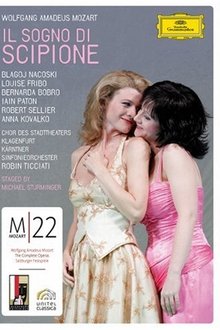
Il Sogno di Scipione (2006)
Mythological hero Scipio must choose between Fortune and Constancy in this superb 2006 Salzburg Festival production of Mozart's "Il Songo di Scipione," directed by Michael Sturminger and starring Blagoj Nacoski, Louise Fribo, Bernarda Bobro, Iain Paton, Robert Sellier and Anna Kovalko. The Chor des Stadttheaters Klagenfurt and the Kärntner Symphonieorchester, conducted by Robin Ticciati, provide accompaniment.
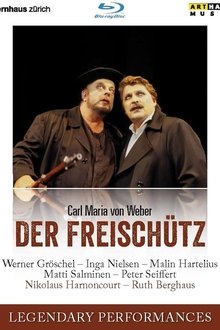
Der Freischütz (1999)
The legendary director Ruth Berghaus created this staging of Carl Maria von Weber’s Der Freischütz as a gripping theatrical experience for the Zurich Opera in 1993. Its revival in 1999 was a roaring success. With sets by Hartmut Meyer and costumes by Marie-Louise Strandt, Berghaus’ staging avoids the local peasant colour conventionally associated with Weber’s opera. Chorus and orchestra of the Zurich Opera House are conducted by Nikolaus Harnoncourt, universally celebrated for the structural transparency of his interpretations, his intellectual penetration and his emotional understanding of both music and opera plot. And last but not least an all-star cast made this production a highly memorable event: the dramatic soprano Inga Nielsen as Agathe, one of her best roles, the Swedish soprano Malin Hartelius as Ännchen, the sought-after Heldentenor Peter Seiffert, who gives a convincing passionate Max, and many others.
